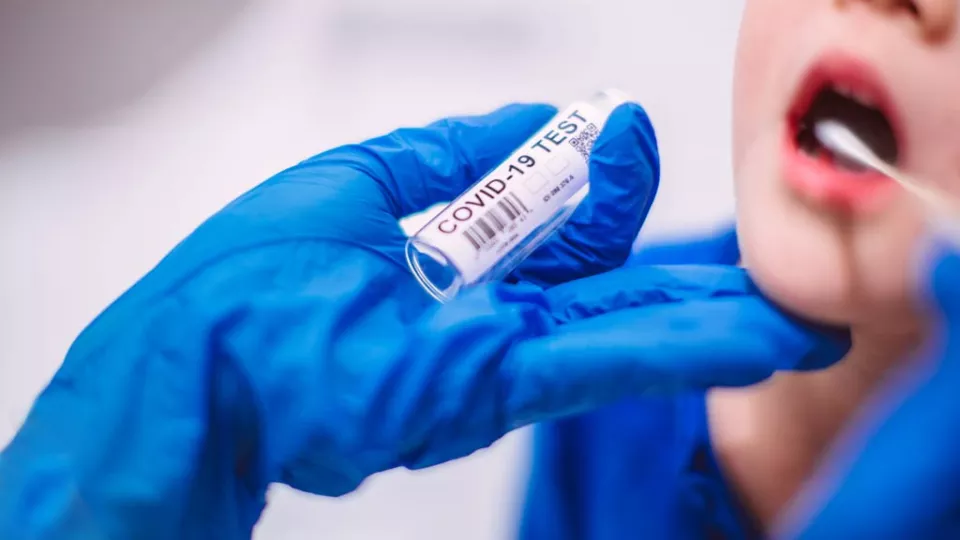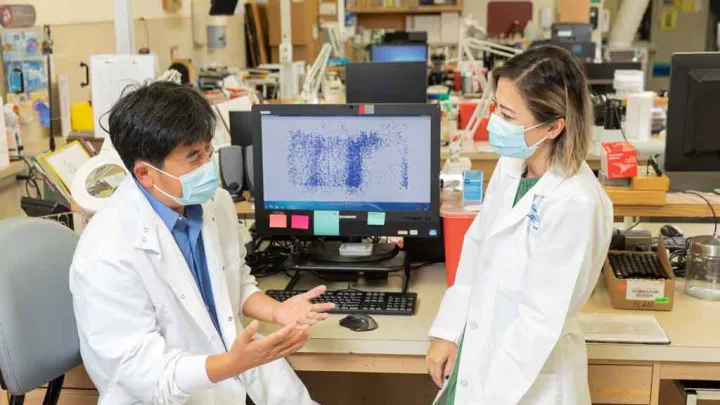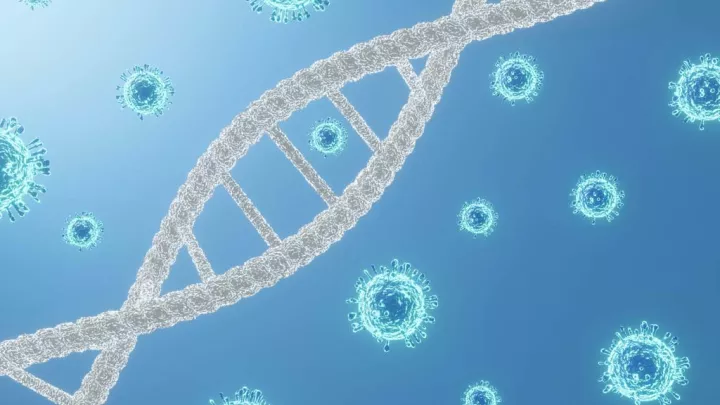
Virus that Causes COVID-19 May Result in Prolonged Infection for Children and Young Adults with Compromised Immune Systems
LOS ANGELES (April 26, 2021) – Children and young adults with compromised immune systems, such as those undergoing cancer treatment, may experience a prolonged period of infection with SARS-CoV-2, the virus that causes COVID-19, and the extended duration of infection may increase the incidence of mutations. This case study was conducted by investigators at Children’s Hospital Los Angeles and is published in the journal EBioMedicine.
Most people are infectious for about 10 days after first showing COVID-19 symptoms. In this study, researchers describe two children and a young adult with acute lymphoblastic leukemia who tested positive for SARS-CoV-2 for months. This is the first report of prolonged infection in a pediatric or young adult population.
“It’s significant that these patients continued to have active symptoms and active infections for such a long time,” says senior author Jennifer Dien Bard, PhD, Director of the Clinical Microbiology and Virology Laboratory at Children’s Hospital Los Angeles. “The large number of pediatric and adult patients receiving cancer therapy and being actively screened for the virus leads us to conclude that this is a rare occurrence but one that could have public health implications.”
SARS-CoV-2 mutates about once or twice a month, according to Dr. Dien Bard. A long period of infection raises concerns about the development of viral mutations. When a virus replicates, it copies its genetic code, but sometimes the virus makes a mistake known as a mutation. Most mutations have no effect on how the virus behaves or on the disease it causes, but some may result in the virus acting differently. For example, the B.1.1.7 SARS-CoV-2 variant which has 17 mutations, is thought to be more infectious than other virus variants.
Dr. Dien Bard notes there is some evidence to suggest the B.1.1.7 variant may have originated in a person who was immunocompromised and consistently infected with SARS-CoV-2. Yet even in immunocompromised patients, months-long infections are rare.
“We have had many other immunocompromised patients who have not experienced these prolonged infections, but it’s something to be aware of, and hospitals may want to consider changing infection control policies to address this particular special population,” says Dr. Dien Bard.
Dr. Dien Bard and other experts at Children’s Hospital Los Angeles have been genetically sequencing SARS-CoV-2 samples since March of 2020. Learn more about their work here and here.
Additional authors on the paper include: first author Thao T. Truong, Alex Ryutov, Rebecca Yee, Lishuang Shen, Moiz Bootwalla, Dennis T. Maglinte, Dejerianne Ostrow, David Ruble and Jennifer H. Han of Children’s Hospital Los Angeles; Lior Goldberg, Deepa Bhojwani, Paibel Aguayo-Hiraldo, Jaclyn A. Biegel, Pia S. Pannaraj, Maurice O’Gorman, Alexander R. Judkins and Xiaowu Gai of Children’s Hospital Los Angeles and the Keck School of Medicine at USC; Benjamin A. Pinsky, Oliver F. Wirz, Katharina Röltgen, ChunHong Huang and Malaya K. Sahoo of the Stanford University School of Medicine; Scott D. Boyd of the Stanford University School of Medicine and the Sean N. Parker Center for Allergy and Asthma Research; Andrew Pekosz and Maggie Li of the Johns Hopkins Bloomberg School of Public Health; and Utsav Pandey of Westchester Medical Center/New York Medical College.
This work was funded, in part, by The Saban Research Institute of Children’s Hospital Los Angeles, the Johns Hopkins Center of Excellence in Influenza Research and Surveillance, NIH/NIAID R01AI127877, NIH/NIAID R01AI130398, NIH 1U54CA260517, the Crown Family Foundation, the Swiss National Science Foundation, a Coulter COVID-19 Rapid Response Award and a SHARE Research Fellowship.
About Children's Hospital Los Angeles
Founded in 1901, Children's Hospital Los Angeles is the highest-ranked children’s hospital in California and fifth in the nation on the prestigious U.S. News & World Report Honor Roll of best children’s hospitals. U.S. News ranks Children’s Hospital Los Angeles in all 10 specialty categories. Clinical care at the hospital is led by physicians who are faculty members of the Keck School of Medicine of USC through an affiliation dating from 1932. The hospital also operates the largest pediatric residency training program at a freestanding children’s hospital in the Western United States. The Saban Research Institute of Children’s Hospital Los Angeles is home to all basic, translational, clinical and community research conducted at the hospital, allowing proven discoveries to quickly reach patients. Our mission: to create hope and build healthier futures. To learn more, follow us on Facebook, Instagram, LinkedIn, YouTube and Twitter, and visit our blog at CHLA.org/blog.


